April 28, 2024 | 00:25 GMT +7
April 28, 2024 | 00:25 GMT +7
Hotline: 0913.378.918
April 28, 2024 | 00:25 GMT +7
Hotline: 0913.378.918
As the Plant Protection Department outlines, a range of measures is currently employed to curb the spread and devastation caused by fall armyworms. These include early detection and investigation, utilization of resistant varieties, products and biological agents such as natural enemies and bait traps, alongside chemical pesticides.
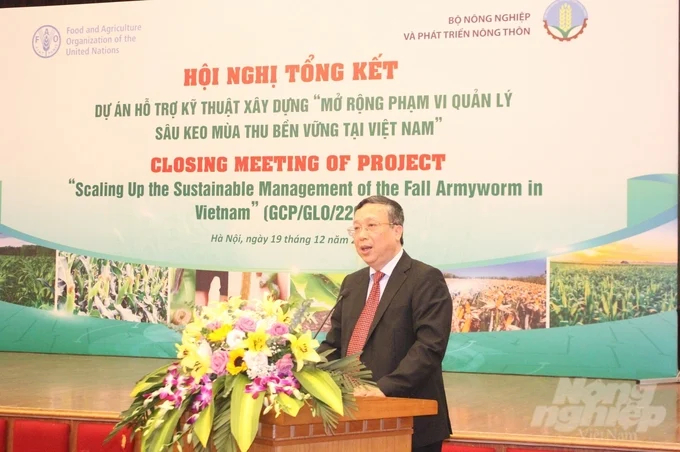
Deputy Minister of Agriculture and Rural Development, Hoang Trung, highlighted that amid climate change's escalating complexities, the behavior, emergence, and development patterns of fall armyworms could undergo significant shifts. Photo: Trung Quan.
Despite the available measures, the predominant reliance of Vietnamese farmers on chemical pesticides remains a concern. Perceived as the quickest means to suppress epidemics, this approach often neglects the potential long-term consequences. The extensive use of chemical agents poses risks to human health and the environment, causing harm to natural enemies and disrupting the ecological balance. This, in turn, jeopardizes the sustainability of corn production in the country. Meanwhile, adopting safe and effective technological advancements for corn pest management, including fall armyworms, is gradually gaining traction.
The Food and Agriculture Organization of the United Nations (FAO) notes that fall armyworms rapidly develop resistance to various chemical types in Africa and Asia. Consequently, addressing sustainable fall armyworm management, alongside the restoration and preservation of natural enemy diversity, emerges as a crucial concern. This is not only pertinent for the immediate future but holds long-term significance. Specifically, incorporating resistant varieties, cultivation methods, and biological agents is integral to the broader framework of integrated corn pest management measures.
The project ‘Scaling up the sustainable management of the fall armyworm in Vietnam’ aligns with FAO's global initiative to achieve sustainable fall armyworm management. Notably, the project’s outcomes are intended to be shared with countries in Africa, the Near East, and Asia.
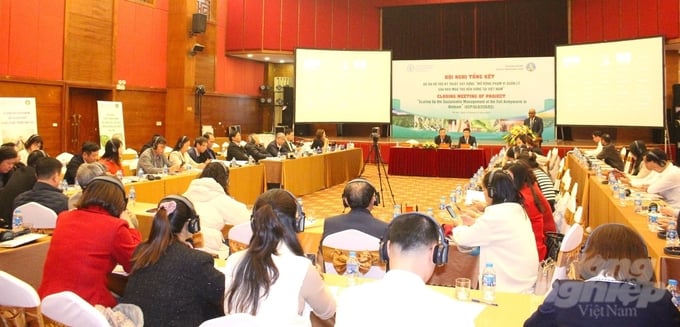
After six months of implementation, all of the project’s set goals have been achieved. Photo: Trung Quan.
Six months into its implementation, the project’s predetermined goals have been accomplished, yielding remarkable results. The project has significantly enhanced the national capacity for sustainable fall armyworm management through educational initiatives, training programs, and the demonstration of scientific and technical advancements in monitoring and management. This comprehensive approach incorporates considerations of gender participation, food safety, climate change adaptation, and cross-border pest management. Sixty-five trainers from 29 provinces and three regional plant protection centers have undergone Training of Trainers (TOT), and nine core farmer training classes have been conducted, engaging 270 participants (103 men and 167 women).
The proactive measures undertaken by the project include implementing sustainable fall armyworm prevention and control solutions to mitigate the widespread outbreak of epidemics. Two training classes involving 60 participants have been organized for farmers. Furthermore, the project has established two integrated fall armyworm management models (IPM/IPHM) covering an area of 10 hectares each in Phu Tho and Dong Nai.
Additionally, the project successfully facilitated collaboration with regional countries to establish a monitoring and early warning system for the emergence and impact of fall armyworms, leveraging the national and regional plant protection network.
Deputy Minister of Agriculture and Rural Development, Hoang Trung, shared insights into the challenging situation that unfolded in 2019 when fall armyworm first appeared in Vietnam. It rapidly spread to 58 provinces and cities within a short period, affecting a total corn area exceeding 76,000 hectares. The MARD promptly directed specialized units to formulate prevention procedures, implement emergency measures, and conduct training classes to guide farmers in identifying and responding to this detrimental organism. This concerted effort led to a gradual reduction in the corn area infected by fall armyworm. By 2023, the nationwide infected area is anticipated to be around 8,000 hectares, with a relatively mild level of harm.
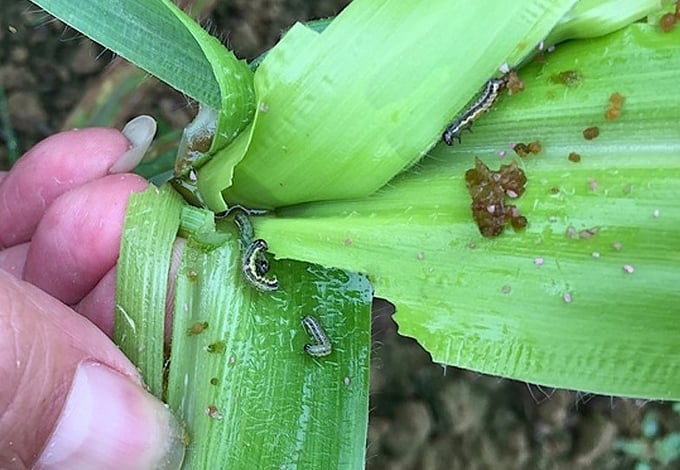
Effectively managing fall armyworms through measures that minimize the reliance on chemical pesticides, thereby safeguarding the environment and public health, is a pragmatic approach. Photo: Archive.
However, in the face of the increasingly complex landscape of climate change, the fall armyworm's generation, development, habits, and behavior patterns may undergo significant transformations. There is even the potential for these pests to extend their attacks to other crops, including rice. Consequently, management agencies and localities should avoid complacency and remain vigilant, consistently devising plans to address any conceivable situation.
The project ‘Scaling up the sustainable management of the fall armyworm in Vietnam,’ backed by FAO, is instrumental in seeking solutions for sustainable fall armyworm management. This initiative is highly meaningful, providing crucial supplements in measures, documents, and information for the plant protection industry, localities, and the public to respond more effectively to fall armyworm challenges.
Moreover, the project adopts a highly practical approach by directing fall armyworm management efforts toward minimizing the use of chemical pesticides. This aligns with promoting transparent, responsible, smart agriculture, green growth, emissions reduction, and circularity.
Deputy Minister Hoang Trung urged localities to proactively formulate Training of Trainers (TOT) and Farmer Field School (FFS) training plans tailored to their needs. The units under the Ministry swiftly compiled the necessary documentation for dissemination to the public. The National Agricultural Extension Center, in close coordination with the Department of Plant Protection, is actively involved in facilitating the transfer and replication of the project's successful results.
Translated by Quynh Chi
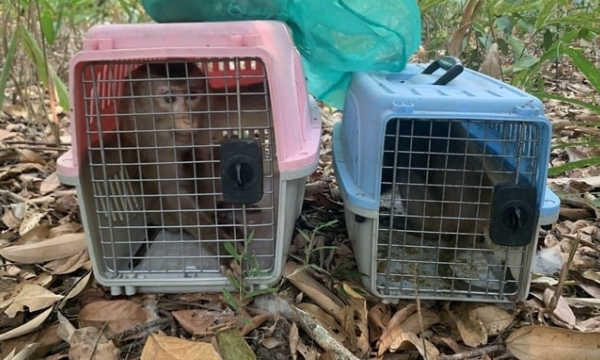
(VAN) After local residents voluntarily transfer them, the 3 pig-tailed macaques are cared for and in good health before being released back into the wild.
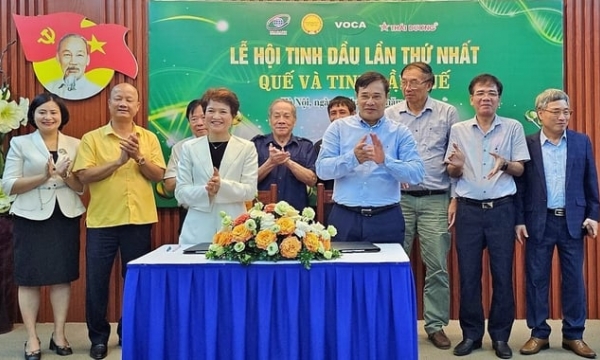
(VAN) Shortage of skilled and specialized human resources, incomplete production processes, and lack of methods to access the global market are common difficulties of the cinnamon industry.
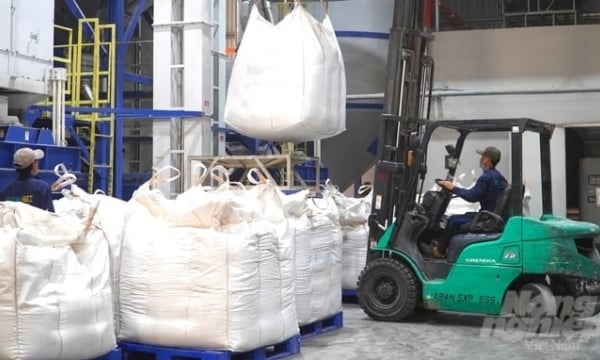
(VAN) In anticipation of a global shortage in rice supply, Vietnam is determined to restructure, enhance value, fulfill domestic consumption needs, and maintain a rice export volume of 7.4 million tons in 2024.
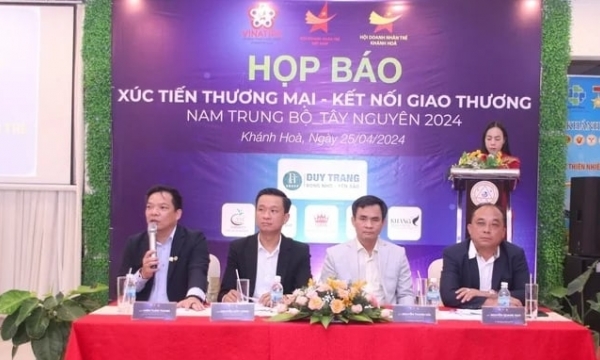
(VAN) The Trade Promotion and Connectivity Program between the South Central Coast and the Central Highlands in 2024 will be held in Nha Trang City on May 23
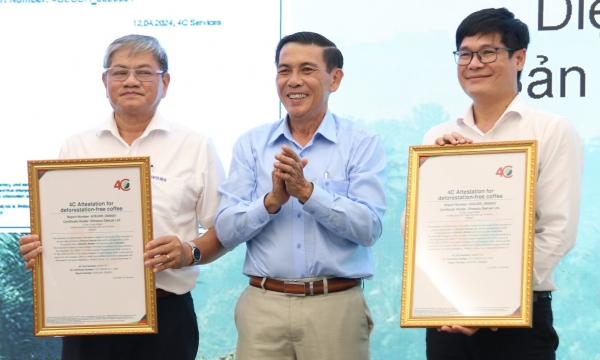
(VAN) Simexco DakLak has been approved for EUDR compliance, which includes 4,957 farmers and 5,375 hectares of production linkage areas.
/2024/04/26/0311-1-085026_641.jpg)
(VAN) The Ministry of Agriculture and Rural Development has just approved Project 'Sustainable Development of the Cassava Industry Until 2030, with a Vision to 2050' with an export target of USD 1.8–2 billion by 2030.
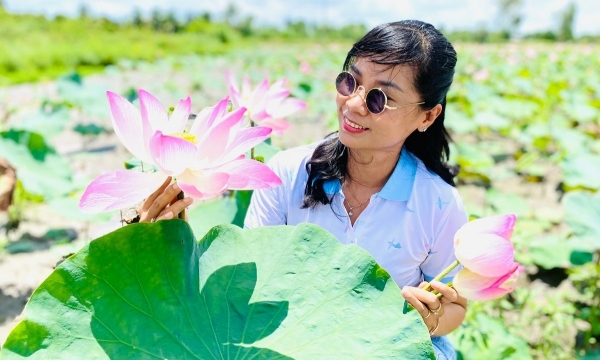
(VAN) The second Dong Thap Lotus Festival in 2024 attracts 66,000 lotus pots, with 57 lotus varieties that are beautifully arranged to create an interesting experience space.